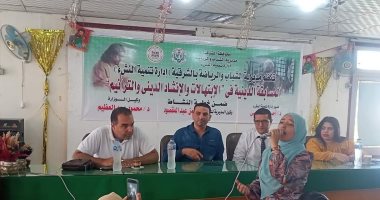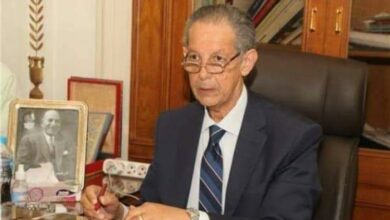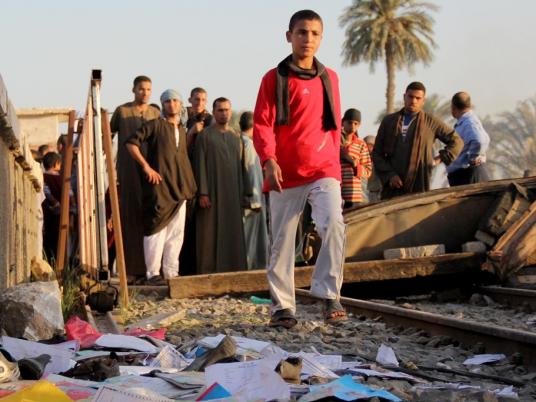SHARQIYA — Islamists are expected to sweep the parliamentary elections taking place today and tomorrow in the governorate of Sharqiya, north of Cairo.
In addition to widespread support, the Muslim Brotherhood’s Freedom and Justice Party and the Salafi-led Nour Party also benefit from the lack of organized opposition in the governorate.
In villages, cities and on the roads, "Freedom and Justice" is spray-painted on walls and sidewalks across the governorate.
With a historically strong Muslim Brotherhood base, some are voting for the FJP out of faith in their morality. Others will vote for them for the social services they have long provided here. Others will vote for them because they don’t know of anything else.
"A lot of people are saying, 'Let’s give religion a chance,'" said Ahmed al-Sayyed, a government employee sitting in a cafe in Sharqiya’s urban center, Zagazig, a day before the elections began. While he hadn’t decided who to vote for yet, the only two parties that Sayyed can remember are FJP and Nour.
With villages constituting two-thirds of Sharqiya, new parties lacked the funds and knowledge to reach people in most of the governorate, while the Muslim Brotherhood had a network already in place.
“The Muslim Brotherhood is very widely present here. You would find at least one [member] in every household, and 50 percent of the people here are illiterate. They don’t know anything about the rest of the parties,” says Sahar, a teacher in the village of Ibrahim Moussa in the area of Abu Hamad.
The former members of Mubarak’s now-dissolved ruling party are heavily featured on the lists of some parties in Sharqiya, particularly the liberal Wafd Party, which is Egypt’s oldest.
In the second district for list-based voting, which includes the southern part of the governorate, Wafd is led by two former MPs from the former ruling party, business tycoon Tarek al-Seweidy, followed by Mostafa al-Hout.
Despite having most candidates on its list from members of the former ruling party, Wafd still enjoys the respect of many in the governorate who appreciate its long history as opposed to the new parties that emerged after the revolution.
Parties that were formed by former members of the old regime also enjoy some recognition in Sharqiya because they are funded by prominent community members who top the lists.
The April 6 Youth Movement in the governorate gave away flyers on the eve of the elections, identifying which parties were formed by members of the fallen regime and urging people not to vote for them.
Despite leading its list with respected constitutional expert Mohamed Nour Farahat, the Egyptian Bloc list — which emerged in the first phase of the elections as the biggest liberal challenger to the Islamist bloc — doesn’t enjoy much presence in Sharqiya.
Yasser al-Refaie, a member of the Youth of the Revolution Coalition who leads the Revolution Continues Coalition list in Sharqiya's first district, said that before the elections, he realized the coalition’s chances are slim.
While the FJP has held daily car parades and campaign events and showered the governorate with banners, Refaie says that the total spending of the Revolution Continues campaign in the first district was LE17,000, confining their activities to giving out flyers and making it difficult for them to reach villages.
“In the villages, the religious incentive is dominating,” Refaie said. “Every time we visit a village, they ask us what we’re going to give away [as charity]. We don’t have the funds for that,” Refaie said, accusing the FJP of handing out food and other goods during its campaigning.
Safwat Abu Hashem, who heads the Sharqiya branch of the moderate Islamist Wasat Party, said he is optimistic about the party’s prospects in the governorate. Abu Hashem expects the Muslim Brotherhood offshoot to receive at least 20 percent of the vote as the alternative for those who don’t want the FJP but still want a party with a religious background.
“In our tours in villages, we found people saying, ‘We don’t want one party to have the majority in the parliament so as not to create a new NDP.’ Wasat is the alternative for them,” he said.
At the same time, Abu Hashem realizes that his party faces an uphill battle against FJP, which is more well-organized.
“Even though the short life of the party and its weak funding are challenges, we enjoy the acceptance of the people," he said.




